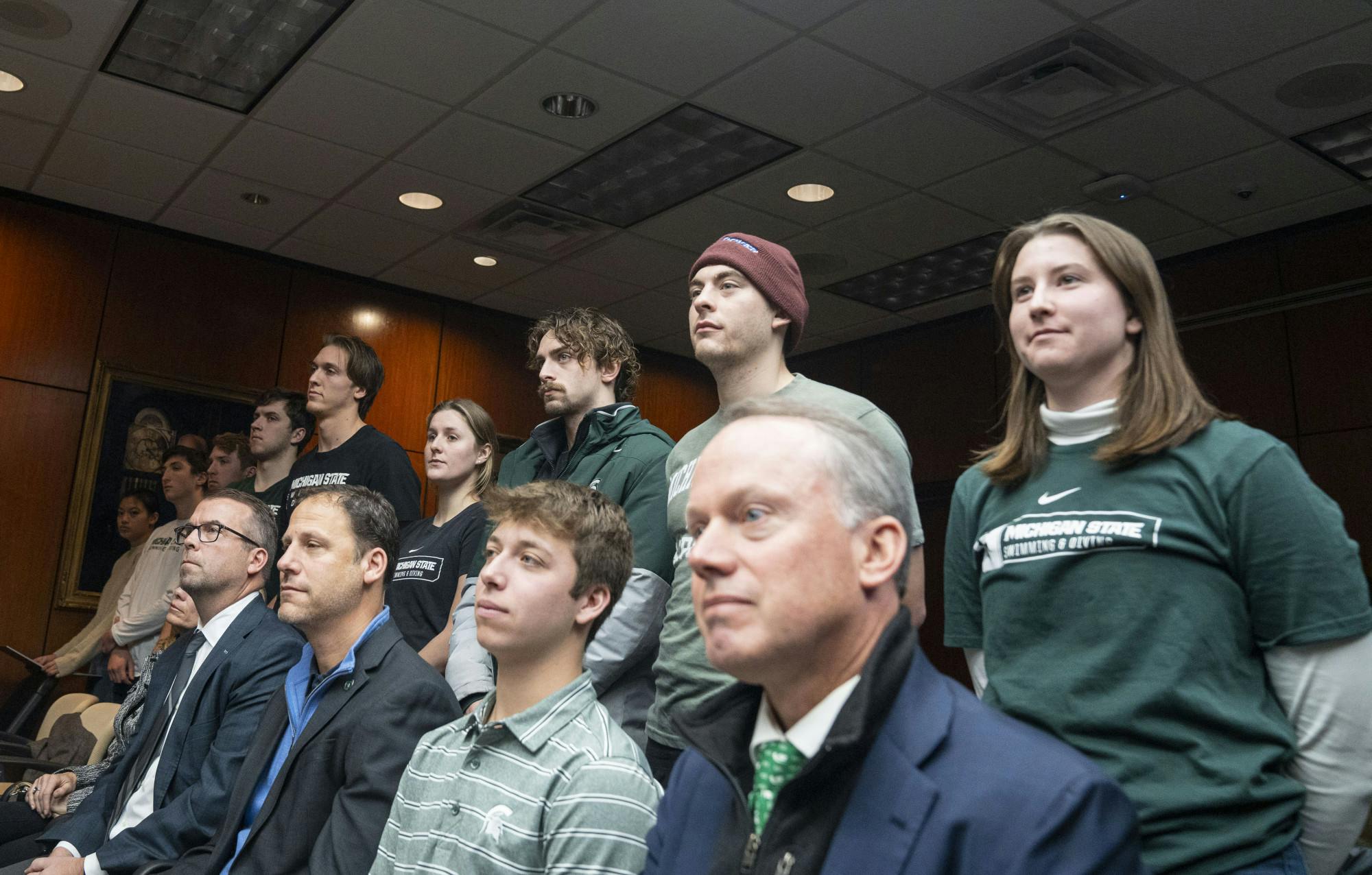An outside gender equity review released last month identified several areas, including financial aid and access to sports-related resources, where female athletes at Michigan State University were not receiving equitable treatment, but some say MSU's problems are worse than the review suggests.
Advocates claim the review — created to find whether MSU is in compliance with the Title IX standard that requires universities to treat female athletes equitably or not — was made with information from misled sources and uses statistics that unintentionally minimize inequities between male and female athletes.
Gabe Feldman, one of the nation's preeminent experts in sports law, was hired to conduct the review as a condition of the university's settlement with members of MSU's dissolved swim and dive teams.
The former swimmers argued that by cutting a sport with so many female athletes, the university had changed the overall gender-ratio of male-to-female opportunities in sports. This disparity, they argued, violated the Title IX policy requiring athletic participation be proportional to enrollment.
They eventually agreed to end the case in exchange for an independent gender equity review and revision of MSU athletics.
Mischaracterizing review director's purpose
Feldman's review relies on two types of information: athletic data provided by MSU and interviews with athletes, coaches and athletic staff on their experiences in MSU athletics.
Mike Balow, leader of Battle for Spartan Swim and Dive, said MSU mischaracterized the purpose of Feldman's visit when he first came to MSU in May to conduct those interviews, resulting in potentially misled interviewees.
According to documents shared with The State News, Director of Student-Athlete Development Angela Montie told athletes and coaches that Feldman was "invited" to campus "to provide a full program assessment of (MSU's) athletic department."
"As a component of our NCAA Diversity, Equity, and Inclusion review, we have invited a Title IX consultant to campus to provide a full program assessment of our athletic department," Montie wrote in an email. "Gabe Feldman will be on campus on Thursday, May 25th, to meet with interested student-athletes. Gabe is interested in hearing from (redacted)."
"I didn't appreciate how his visit was characterized," Balow said. He argued that Montie's email didn’t fully explain Feldman's intentions and purpose.
He also questioned whether enough athletes were on campus when Feldman visited to give him a comprehensive look at the department.
"How many kids are on campus in the summer?" Balow said. "He should have been on campus in the fall, and they should have made a big deal out of (it), saying, 'Look, Gabe Feldman is here as part of the Title IX settlement. We encourage every female athlete to talk with him. If you don't want to talk with him, you don't have to, but you should if you have any concerns at all.’ But, they did not do that."
Portrayal of data
Feldman's review found that although 48.9% of MSU’s athletes are women, they received 46.3% of athletic financial assistance. Anything over a 1% disparity is not in compliance with Title IX policy. MSU has a 2.6% disparity.
But, Nancy Hogshead, an Olympic gold medalist turned legal advocate, says that statistic doesn't tell the whole story.
Hogshead is the founder of Champion Women, a group that advocates for women in sports. Days before Feldman's gender equity review was released to the public, Champion Women had already filed a federal Office of Civil Rights complaint into MSU athletics — using publicly accessible data to argue many of the same things Feldman later found in his review.
But Hogshead’s OCR complaint used slightly different methods to calculate the same disparities. The result portrays MSU's athletic inequities as worse than Feldman's review.
In the 2022-23 school year, 48.9% of MSU's athletes were women. Hogshead says that number should be higher to account for MSU's 51.7% female undergraduate student body, since Title IX requires universities' athletic participation to be "substantially proportionate" to their undergraduate population.
"'Proportionality' is saying the student athlete ratio and the student body ratio are the same," Hogshead said.
Support student media!
Please consider donating to The State News and help fund the future of journalism.
Athletic financial assistance should therefore be compared not to what the percentage of women participating in sports currently is, but what it should be, Hogshead argued.
If that were the case, MSU's athletic financial assistance disparity between men and women would instead be at 5.4% — more than double Feldman's findings.
This problem isn't unique to MSU. Champion Women has filed over a hundred OCR complaints into universities around the country about the same issue. Hogshead said financial inequities can often be mistaken as being less egregious than they really are due to the way they are typically calculated.
Hogshead's goal is to make athletes and the public aware of these disparities so women can have an easier experience getting into college athletics. As a former Olympic swimmer, she said being physically active has a multitude of benefits for both body and soul.
"To deny women equal opportunities because they're women is denying women of a very different future," Hogshead said.
Discussion
Share and discuss “MSU's athletic gender equity problems are worse than they seem, advocates say” on social media.







